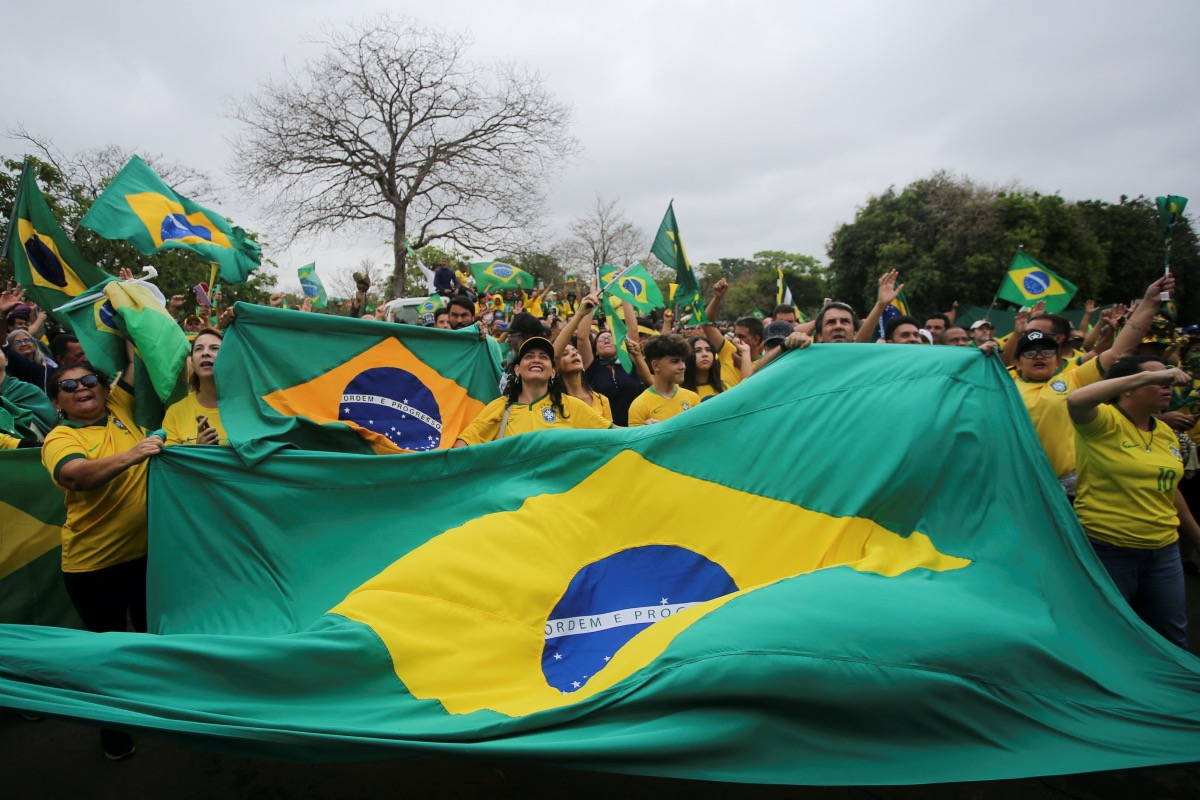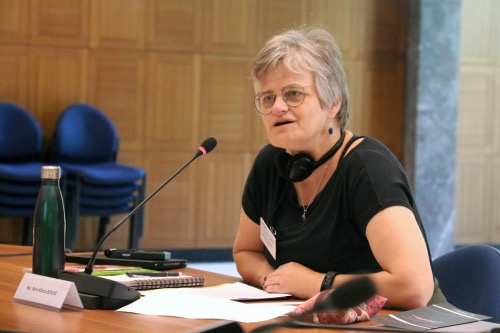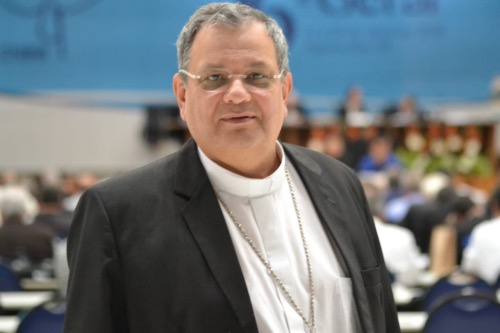São Paulo, Brazil
Brazil’s national council of churches has said the “sovereign will of the people prevailed” at the country’s recent presidential election and that it was ready to collaborate to build “the culture of peace and love” against the “culture of hatred” that had been fostered in the country over the past years.
Incumbent Jair Bolsonaro was narrowly defeated in a election run-off with former President Luiz Inácio Lula da Silva on 30th October. The win – which both Brazil’s electoral authority – which invited a record number of foreign observers to watch the election process – and independent experts have certified as fair – has sparked protests among Bolsonaro supporters with some calling on the armed forces to stage a coup and stop Lula from taking office on 1st January while other groups have been blockading highways in different parts of the country.

Supporters of Brazil’s President Jair Bolsonaro hold flags during a protest against President-elect Luiz Inacio Lula da Silva who won a third term following the presidential election run-off, at Urban Military Sector in Brasilia, Brazil, on 2nd November. PICTURE: Reuters/Diego Vara
The National Christian Churches Council (known in Portuguese as CONIC) said in a statement issued on 2nd November that the Brazilian people “expressed its sovereign will and elected governors and the president of Brazil”.
“We recognise and emphasise the fundamental role of the Superior Electoral Court [known as TSE in Portuguese], which spared no effort to guarantee the people’s right to vote, combated fake news and, above all, took action concerning the complaints of electoral harassment without succumbing to the false narrative that the polls were unreliable,” the statement read.
CONIC added that “TSE’s agility in declaring the president-elect was essential” and put an end “to the rhetoric of those who said that the elections could have been rigged.”

Romi Bencke. PICTURE: Ivars Kupcis/WCC
Lutheran Pastor Romi Bencke, who heads CONIC, told Sight that most of the country’s Reformed churches issued last week statements recognising Lula’s victory and emphasising the importance of democracy.
“But inside of them, there is a great division. We cannot forget that Bolsonaro had 58 million votes [almost 50 per cent]. The right-wing now constitutes an organised social movement, and we do not know how to deal with it,” she told Sight.
She said that “unquestionably” there had been many Christians involved in protests.
Those who have been casting doubt on the fairness of the election have included some Pentecostal and Neo-Pentecostal leaders.
Pastor Silas Malafaia, who heads the church Assembly of God Victory in Christ, has cast doubts over the accuracy of vote counts and criticised Justice Alexandre de Moraes, a member of the Supreme Court and head of the Electoral Court.
On 5th November, Malafaia said on social media that de Moraes “should provide robust evidence” that there has been no electoral fraud.
Congressman Marco Feliciano, a pastor who heads another branch of the Assembly of God, has also been supporting the fraud claims. On 7th November, he made an official request of information on the election to Justice de Moraes.
Bencke fears that the political rift in the Brazilian society will remain in the future, and that it may lead to internal conflicts and splits in the churches.
“The churches’ leaders have been doing a great effort to maintain unity but there is a limit to that effort,” she said.
On 31st October, one day after the vote, the Catholic Bishops’ Conference issued a statement in which it congratulated the elected governors and President and called for reconciliation. But the tension inside the Catholic Church also seems to be growing, with a number of reports of arguments during services since the electoral campaign.

Auxiliary Bishop Joel Portella Amado, the Bishops’ Conference’s Secretary General, PICTURE: CNBB
Recent incidents include one on 6th November, when Fr Danilo Neto of Nerópolis, Goiás State, asked churchgoers who voted for Lula to leave the Mass. A woman began to argue with him, and he decided to take off his cassock and leave the church. The Diocese of Anápolis issued a statement in which it lamented the event and said it would take action on it.
According to Auxiliary Bishop Joel Portella Amado, the Bishops’ Conference’s Secretary General, it is time to avoid “being carried away only by emotions”.
“We are emotion[al], of course, but we are also reason[able]. In moments like the one Brazil and other parts of the globe are now facing, we need to recover the balance between emotion and reason,” he told Sight.
According to Amado, “everybody wants a better country”, but that will only be achieved “if the outcome of the election is accepted.”
“We cannot let the differences grow to the point of becoming stronger than our overall condition as children of the same God, of universal fraternity – one that encompasses every human being no matter his or her candidate,” he added.






